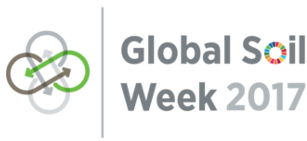![]()
Monday, 20 April 2015
Day 2: Soils in the goals and targets of the new sustainable development Agenda
Organisations
IASS – Institute for Advanced Sustainability Studies (Germany)
SEI – Stockholm Environment Institute (Sweden)
Deutsche Welthungerhilfe e.V. (Germany)
Presentations by
The importance of plant-based biomass – used for food, feed, fuel and industrial purposes – is insufficiently addressed in the visions informing the future global development agenda. Due to population growth, changing consumption patterns and industrial transformation, demand for biomass, in all its forms, is expected to increase. Yet, biomass is a limited resource. If not managed and governed appropriately, the production and consumption of biomass can aggravate environmental challenges and undermine social development. Against this background, the dialogue session discusses the trade-offs and repercussions associated with biomass in the context of the competing demands of the Post-2015 Development Agenda. Together with stakeholders from different backgrounds, the session will reveal interconnections between social, economic and ecological trends of biomass production and consumption, and holistically assess whether the proposed development visions are sustainable.
You may also be interested in the following Lunch Break Forum (LBF) contributions:
–> LBF-20: Wageningen Soil Network
Download the session description here.
Programme
Contact: Ira Matuschke

